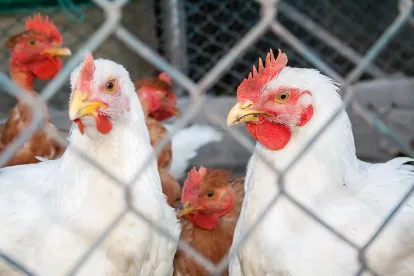When people think about this year’s food industry trends, they may envision app-based grocery delivery services, the Keto diet, and restaurants that serve all locally-sourced ingredients.
But inside federal courthouses across the country, the Department of Justice and civil plaintiffs have been highlighting a darker trend within the food business: price fixing.
Under United States antitrust law, price fixing is defined as an agreement among competitors that raises, lowers, or stabilizes prices or competitive terms. The U.S. antitrust laws require that each company establish prices on its own without agreeing with a competitor on a price to charge consumers. The driving force behind our antitrust laws is simple: when competitors agree to restrict competition and inhibit a free market, it results in higher prices. And an agreement to restrict production, sales, or output of a product or service is just as illegal as direct price fixing because reducing the supply of a product or service drives up its price.
In January 2018, poultry distributors filed civil lawsuits against seventeen of the country’s largest wholesale chicken producers, including Tyson, Pilgrim’s Pride, and Perdue. The lawsuits allege that poultry manufacturers worked together for years to both restrict the supply of chickens being raised and manipulate an index of chicken prices used by the industry. The allegations against the poultry giants are disturbing: plaintiffs contend that manufacturers went so far as to destroy breeder hens and kill newly-hatched chicks in an effort to reduce their supply chain.
In May 2018, the CEO of Bumble Bee Foods became the fourth tuna industry executive to be criminally charged with fixing the price of canned tuna fish. Bumble Bee pleaded guilty in May 2017 to conspiring to fix tuna prices and paid a $25 million fine. On October 18, 2018, federal prosecutors announced that StarKist had also agreed to plead guilty, and would be facing a fine of up to $100 million. Two former Bumble Bee executives and a former StarKist executive have also each pleaded guilty to price-fixing charges. So far, more than 70 civil lawsuits have been filed against Bumble Bee, Starkist, and Chicken of the Sea arising out of this conspiracy.
Additionally, in July 2018, nine pork producers were named as defendants in a new lawsuit accusing them of colluding to limit pork production, with the “intent and expected result” of increasing pork prices.
Price fixing of food products isn’t limited to the United States. Earlier this year, the Competition Bureau of Canada announced its investigation against leading Canadian wholesalers and retailers for engaging in a fifteen year conspiracy to fix the price of bread products sold in grocery stores.






 />i
/>i

